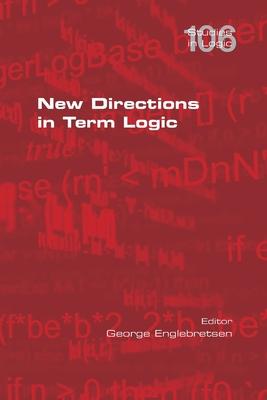The systematic account of deductive reasoning and the development of a formal logic to reveal the principles of such reasoning began with Aristotle's syllogistic. It was a term logic, a logic that dominated the field until the rise of modern predicate logic at the end of the Nineteenth century. That system quickly supplanted the old logic of terms. However, in the middle of the Twentieth century Fred Sommers took up the challenge to build a revised and strengthened term logic, one fit to challenge the hegemony of predicate logic. The aim was to devise a formal logic that could better serve as the logic of natural language.
In recent years a new group of logicians have taken this version of term logic into many new directions. This book presents here for the first time some of the best examples of their work with new essays by philosophers, logicians, mathematicians, computational theorists, and historians of logic. The topics addressed include relative terms, logical copulation, Aristotelian diagrams, modality, truth, semantics, epistemic term logic, non-classical quantifiers, and more.
